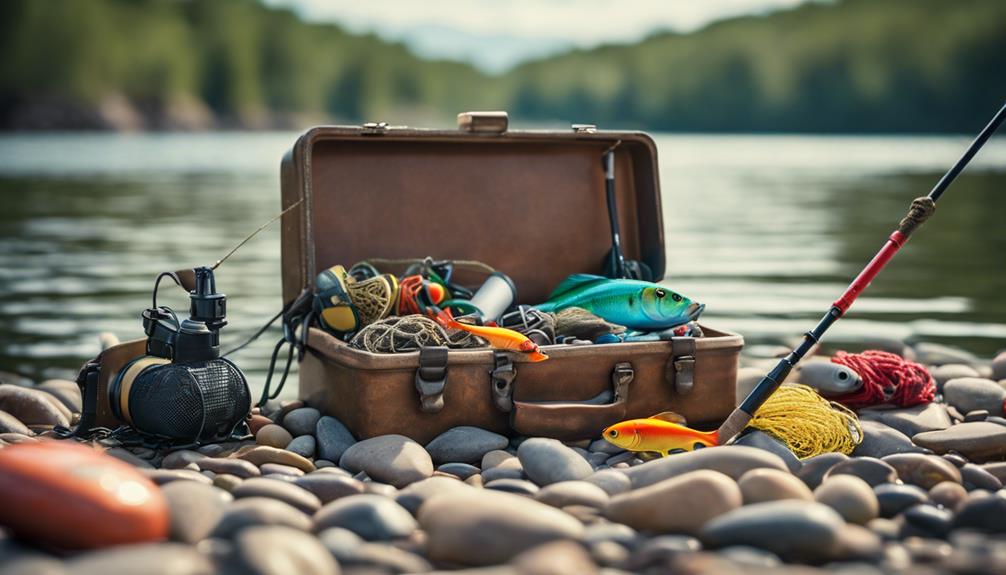Fishing is a beloved pastime for many, offering a chance to connect with nature, enjoy the outdoors, and even catch dinner. However, before you cast your line, it’s essential to understand the regulations surrounding fishing licenses. One of the most common questions among aspiring anglers is, “How old do you need to be for a fishing license?” In this article, we’ll delve into the requirements, variations across different states, exemptions, and more, helping you navigate the world of fishing licenses with ease.
Understanding Fishing License Age Requirements
The age requirement for obtaining a fishing license varies significantly from state to state. In most regions of the United States, individuals typically need to be at least 16 years old to apply for a fishing license independently. However, some states offer youth licenses for younger anglers, allowing children as young as 12 to fish legally, provided they have permission from a parent or guardian. It’s crucial to check your specific state’s regulations, as they can differ not only in age requirements but also in the types of licenses available.
Types of Fishing Licenses and Their Age Criteria
Fishing licenses often come in various forms, including annual, temporary, and youth licenses. For instance, many states offer discounted or free licenses for minors, typically ranging from 12 to 15 years old. These youth licenses are designed to encourage fishing among younger generations while still ensuring that the necessary regulations are followed. Additionally, some states allow children under a certain age to fish without a license when accompanied by a licensed adult. Understanding these different types of licenses is essential for parents looking to introduce their children to the joys of fishing.
Exceptions and Special Circumstances for Fishing Licenses
While most states have a minimum age requirement for fishing licenses, there are exceptions in certain circumstances. For instance, some states allow children under a specific age to fish without a license during designated free fishing days, which are often held throughout the year to promote fishing as a recreational activity. Additionally, anglers with disabilities may have different licensing requirements depending on their state of residence. Always check local regulations to understand any exceptions that may apply to your situation.
How to Obtain a Fishing License
Obtaining a fishing license is generally a straightforward process. Most states allow you to purchase a fishing license online, at local sporting goods stores, or through designated government offices. To apply for a fishing license, you will typically need to provide proof of age, such as a birth certificate or a government-issued ID. If you’re obtaining a license for a minor, you may also need to present identification that verifies your relationship. Remember to check for any specific requirements in your state, as these can vary widely.
The Importance of Having a Fishing License
Having a fishing license is not just about following the law; it also plays a critical role in conservation efforts. The funds generated from fishing licenses often go towards maintaining and improving fish habitats, supporting wildlife conservation programs, and funding educational initiatives. By purchasing a fishing license, you contribute to the sustainability of fish populations and the overall health of aquatic ecosystems. Understanding the importance of these licenses can deepen your appreciation for the sport and the environment.
Understanding Fishing Regulations by State
Each state has its own unique set of fishing regulations, which can include restrictions on the types of fish that can be caught, the size and bag limits, and specific fishing seasons. These regulations are often designed to protect fish populations and ensure a balanced ecosystem. It’s crucial to familiarize yourself with the fishing regulations in your state to avoid penalties and contribute positively to conservation efforts. Many state wildlife agencies provide detailed guides and resources online, making it easier for anglers to stay informed.
Encouraging Youth Participation in Fishing
Fishing can be a fantastic bonding experience for families, and it’s essential to encourage youth participation in this rewarding activity. Teaching children how to fish can instill a sense of responsibility, patience, and an appreciation for nature. By understanding the age requirements for fishing licenses, parents can make informed decisions about when to introduce their children to fishing. Additionally, participating in local fishing events or youth fishing clinics can provide opportunities for young anglers to learn skills and meet fellow fishing enthusiasts.
Conclusion: Start Fishing the Right Way
In conclusion, understanding how old you need to be for a fishing license is crucial for anyone looking to embark on this enjoyable outdoor activity. While the general age requirement is typically 16, many states offer options for younger anglers, making it possible for children to join in the fun. By ensuring that you and your family have the appropriate licenses and knowledge of local regulations, you’ll be well on your way to creating lasting memories on the water. So gather your gear, check the rules, and get ready to enjoy the great outdoors with a fishing rod in hand!
—
By following the guidelines provided in this article, you can confidently navigate the requirements for fishing licenses in your area. Remember, fishing is not just about catching fish; it’s about enjoying nature, spending quality time with loved ones, and contributing to conservation efforts. Happy fishing!
